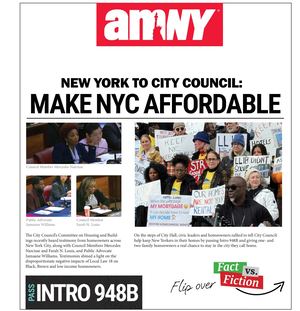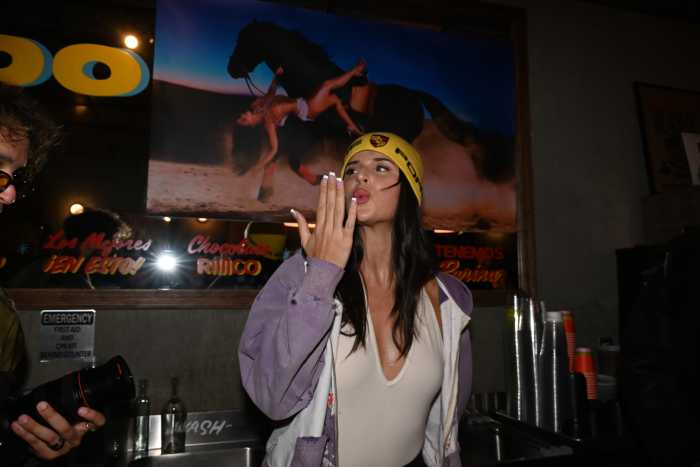These days, former Rep. Anthony Weiner is better known for his sexting scandal than his achievements over decades in public service. He’d surely love to change that.
That’s the apparent explanation for the seemingly incomprehensible reality that a documentary film crew earned permission to follow him during his ill-fated 2013 campaign for mayor and to keep the cameras rolling during some of the darkest and most despairing moments as the drama that forced his resignation from Congress in 2011 re-emerged that summer.
The result of those efforts by Josh Kriegman, a former Weiner chief of staff, and his filmmaking partner Elyse Steinberg, is the remarkable “Weiner,” opening in theaters on Friday ahead of a fall Showtime premiere.
amNewYork spoke with Kriegman and Steinberg about the movie, which is sure to challenge your most closely held notions of the man in the spotlight.
How did this project come about? It’s a bit hard to fathom in several ways.
Josh Kriegman: When he had his scandal and resigned from Congress, Elyse and I knew at that point, having known him, that he was a dynamic character. We thought the story would be interesting to tell. He and I had started talking about doing a documentary right around the time he resigned and that was a conversation that went on over the course of a couple years. He and I had a lot of back and forth about the possibility of doing a documentary to tell his story.
Why do you guys think he let you make this?
Elyse Steinberg: This question, “Why did he let us film, why did he let us film?” is a question we wondered about ourselves. And that is why we put that question to him. … He says that he wanted to be viewed as the whole person that he was and not as a punchline, and that was our intention with this film, to show a more complex portrait of him.
To what extent do you think the scandal’s re-emergence in 2013, during the campaign and while you were filming, affected that?
ES: That desire of wanting a different version than the one that was playing out in the tabloids and headlines, it just intensified after the scandal broke [in 2013]. And so, really, one of the things that we tried to do with this film was to show the two versions of the story. You have the media, news, tabloid version and then you have the real one, the one that was happening in the home.
The mayoral campaign was a bit of a circus but the current presidential campaign has surpassed it, hasn’t it?
ES: Our hope is that this film has relevance that’s beyond Anthony, beyond the campaign, that speaks to where we are in terms of our media, in terms of our politics. We think it really does have some relevance right now. You don’t have to look very far, to the presidential race, in terms of this issue of politics as spectacle. So you take this moment and this campaign, 2013, and it’s relevant now.
The fact that Anthony’s wife, Huma Abedin, is Hillary Clinton’s top aide has, it would seem, made it impossible for the film to avoid being swept up in the frenzy.
ES: We have no control over how Secretary Clinton’s opponents or others choose to utilize this film. But where we think it is relevant is a look at our politics. Especially with Donald Trump. There are parallels with Anthony and Donald Trump. Obviously, different sides of the aisle, very different politically and personally, but they both understood that in order to have a voice in today’s 24/7 news cycle, in order to be a successful politician, you need to put on a show.
Anthony hasn’t seen the movie and hasn’t said a whole lot about it beyond expressing some unease. Have you heard from him at all?
JK: I haven’t talked to him much since we had these conversations about him watching the film and inviting him to see the film. And so, we really don’t know. We really don’t know exactly where he’s at. I’m very curious to know what he thinks of the film.
Anthony is fundamentally a regular guy and I wonder if the extraordinary scrutiny of the social media age might be discouraging other similar folks from running for office?
JK: There’s a real question now — what does it mean to be a politician today? What does it require? What does it mean that there is no private sphere anymore, everything is considered on limits? One of the fascinating things about Anthony is a lot of the qualities that made him so successful in the first place, that really served him well in public politics, were the same qualities that ultimately led to problems that contributed to his undoing.





































